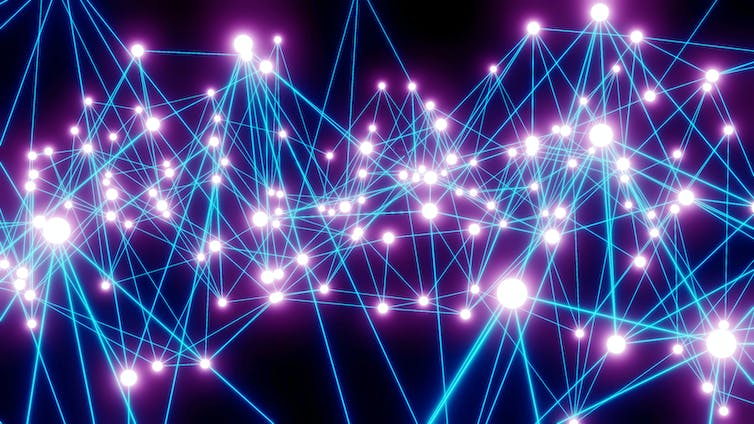Until very recently, if you wanted to know more about a controversial scientific topic – stem cell research, the safety of nuclear energy, climate change – you probably did a Google search. Presented with multiple sources, you chose what to read, selecting which sites or authorities to trust.
Now you have another option: You can pose your question to ChatGPT or another generative artificial intelligence platform and quickly receive a succinct response in paragraph form.
ChatGPT does not search the internet the way Google does. Instead, it generates responses to queries by predicting likely word combinations from a massive amalgam of available online information.
Although it has the potential for enhancing productivity, generative AI has been shown to have some major faults. It can produce misinformation. It can create “hallucinations” – a benign term for making things up. And it doesn’t always accurately solve reasoning problems. For example, when asked if both a car and a tank can fit through a doorway, it failed to consider both width and height. Nevertheless, it is already being used to produce articles and website content you may have encountered, or as a tool in the writing process. Yet you are unlikely to know if what you’re reading was created by AI.
As the authors of “Science Denial: Why It Happens and What to Do About It,” we are concerned about how generative AI may blur the boundaries between truth and fiction for those seeking authoritative scientific information.
Every media consumer needs to be more vigilant than ever in verifying scientific accuracy in what they read. Here’s how you can stay on your toes in this new information landscape.

Based on all the data points it ingests, an AI platform uses predictive algorithms to produce answers to queries.
Cobalt88/iStock via Getty Images Plus
How generative AI could promote science denial
Erosion of epistemic trust. All consumers of science information depend on judgments of scientific and medical experts. Epistemic trust is the process of trusting knowledge you get from others. It is fundamental to the understanding and use of scientific information. Whether someone is seeking information about a health concern or trying to understand solutions to climate change, they often have limited scientific understanding and little access to firsthand evidence. With a rapidly growing body of information online, people must make frequent decisions about what and whom to trust. With the increased use of generative AI and the potential for manipulation, we believe trust is likely to erode further than it already has.
Misleading or just plain wrong. If there are errors or biases in the data on which AI platforms are trained, that can be reflected in the results. In our own searches, when we have asked ChatGPT to regenerate multiple answers to the same question, we have gotten conflicting answers. Asked why, it responded,…



